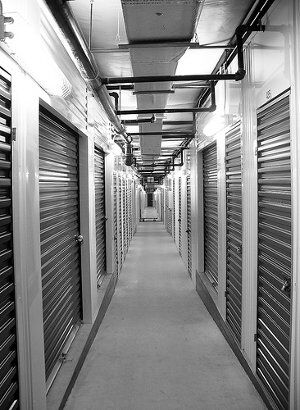It seems like the more we digitize of or life, the less we access it.
I went to some friends a week ago. One family visiting another. They just moved to a new place and did a housewarming party. We sat there and they talked about the trips they did before their boy was born, and how they had the time to travel the world a couple of years because they married late. My wife asked to see photos of these trips, and then a photo album was taken out and was passed around for us to see.

It was an interesting and quaint experience – looking at a photo album – especially when this couple are arguing for years now if they need to develop their digital photos and put analog prints of them into physical albums or not – the notion being that without the physical album – nobody watches them.
–
I read the The Innovator’s Solution lately. In it, the authors give Kodak as an example of a company being disrupted because it didn’t understand the “job to be done” and align itself accordingly. Their view? People want to take photos of their experiences a lot more than watch them later, so improvements in image quality from a certain point in time is useless to most.
The same goes for Flickr and the rest of the online tools that enable putting an order to images – very little use of them once Dropbox added automatic photo upload for smartphones; and Instagram focused on instant sharing.
I guess it again talks about the fact that we rather store than retrieve.
–
Facebook and Twitter. We overshare stuff on them, but do we really look back to the past to see what’s there? Can we do it easily at all? How many of us even care?
–
WebRTC enables doing the same to voice. There’s an interesting article in the New York Times about what’s lost when everything is recorded. It deals a lot with meta data and analytics and can now be used on the recordings.
The most essential part? If we record everything, do we bother to remember anything? Will we be putting less emphasis on remembering simply because it is stored somewhere? Same as no one ever remembers a phone number anymore.

It’d be happy if WebRTC just gave me a way to have a secured conversation of which I know isn’t being recorded or snooped on (by a third party) and I can be pretty certain the person I’m talking is who I think it is.
There is a draft for that:
http://tools.ietf.org/html/draft-ietf-rtcweb-security-05
At the last IETF meeting it was decided that WebRTC in the browser will not support SDES. This is a bad thing for compatibilty (but gateways are needed anyway).
But it’s a good thing for security, because SDES is supposedly less secure. So that is the first step.
Just to make it clear this does not give you anonymity either. IP-addresses might reveal who you are and the data from the signaling can be logged.
Lennie,
While security and privacy are important, having them still enables me as a user to store my interactions, which is what I am lamenting about.
The fact that calls today (phone calls, voip calls, conference calls, video calls) are not recorded (by the participants, not the NSA :)) means that lots of the data is lost. Hence people moved to other means, which are retrievable – text message, IM, e-mail.
I think that if all our calls were recorded and transcribed, easily accessed and searched, it would radically change our personal and work habits and productivity.
You are ruining all the romance in my post, you do realize that…
I just see how I treat the photos I take, and somehow, I don’t like how the future looks. Probably the fact that I got older by a year recently.
Your article reminded me of the TED talk of Ken Jenning, about the digitization of knowledge:
http://www.ted.com/talks/ken_jennings_watson_jeopardy_and_me_the_obsolete_know_it_all.html
The interesting question is when we do put all out knowledge, experience and “history” on a digitized manner and never look at it again, what we actually gain from it.
Ori,
Thanks for sharing the link – I really enjoyed his talk.